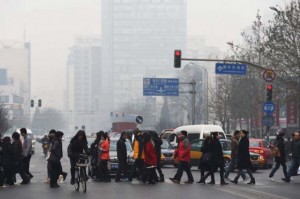United Nations University
UNU International Institute for Global Health, Kuala Lumpur
9 Dec. 2014
‘Science of Systems’ comes of age in pioneering interdisciplinary programme; Secretariat opens in China
In China, international experts in health, environmental, behavioural and social sciences launch a pioneering programme to address rising health problems in cities through better urban planning.
Led by the International Council for Science (ICSU), and co-sponsored by the United Nations University and the InterAcademy Medical Panel, the new global Urban Health and Wellbeing Programme will inform city planning, policies and design with science-based strategies and tactics to improve the health of billions of people living in fast-growing urban areas.
It will also identify and help manage the unintended health consequences of urban policy and the connections between cities and planetary change.
People in swelling urban environments worldwide face elevated health risks in several major areas:
* Chronic non-communicable diseases resulting from risk factors associated with urban living, such as physical inactivity, unhealthy diets, tobacco and other drug use. These include cardiovascular disease, certain cancers and Type 2 diabetes, all now at epidemic proportions worldwide
* Infectious diseases (with urbanisation cited as a factor in West Africa’s recent Ebola outbreak)
* Health effects of pollution including cancers and heart and lung diseases
* Mental disorders potentially arising from stress, social isolation and other factors
* Heat stress and natural hazard risks due to climate change
* Vehicle collisions, violence, crime, workplace accidents
###
News release in full, click here
Example coverage by
BBC, click here
Daily Mail, UK, click here
MedIndia, click here
El Espectador, Spain, click here
Coverage summary, click here
